Senior Fellows
In 2014, the Senior Fellows program was replaced by the Center Fellowship, which is handled by the new USC Shoah Foundation Center for Advanced Genocide Research. See more: http://sfi.usc.edu/cagr/fellowships/center_fellows
2013/2014
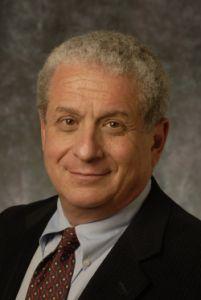
Douglas Greenberg

Distinguished Professor of History, Rutgers University
Spring 2014: “Memories of the Forgotten Holocaust: The Jews of Wolyn, 1900-2000”
“Memories of the Forgotten Holocaust: The Jews of Wolyn, 1900-2000” aims to address two problems simultaneously. The first is to reconstruct the experience of survivors of the Holocaust in a location that fell under the dominion of six different countries over the course of the twentieth century, ultimately in Ukraine: the region of Wolyn. Relying upon about 500 video interviews in the Shoah Foundation Visual History Archive, the project aims to uncover both the narrative of the Shoah in a place where 250,000 Jews were murdered before Auschwitz opened and also the unusual paths to survival followed by those few Volhynian Jews who escaped the bullets of the Einsatzgruppen and their Ukrainian henchmen. The second aim of the project is to explore the memory of the Shoah in Wolyn as expressed by survivors who are only too aware that the prevailing images of the Holocaust do not comprehend the murder of their families and friends. Their knowledge that the story of the Holocaust in Wolyn has been largely forgotten in public memory influences how they recall and retell the story in their Shoah Foundation interviews.
2012/2013
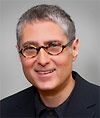
Jeffrey Shandler

Chair and Professor of Jewish Studies, Rutgers University
Spring 2013: “Interrogating the Index: or, Reading an Archive Against the Grain”Accessing the extensive holdings of the USC Shoah Foundation's Visual History Archive depends on its elaborate system of cataloging and indexing. These finding aids reflect the original vision of the Visual History Archive (VHA) as a memorial project and a resource for scholars and others interested in learning about the Holocaust from the perspective of survivors and other eyewitnesses. However, like any other archive, the VHA’s interviews provide a wealth of information on many other topics. This talk will examine what can be revealed by reading the VHA “against the grain,” using its finding aids to consider such issues as the impact of other mediations of the Holocaust on: how survivors tell their stories; how the incorporation of live performance or of other media shape their narratives; the role played by language choice in shaping the interview process; how renowned survivors discuss their history of offering their personal narratives to the public figure in their life stories; and how humor figures in Holocaust remembrance, among other topics.
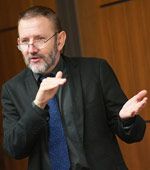
Sean Field

Professor of History, University of Cape Town
Fall 2012: "There Your Memory Runs like a Camera Back"Explored oral histories in the context of both the Truth and Reconciliation Commission and the Centre for Popular Memory in South Africa and approaches to studying memories of violence.
2011/2012
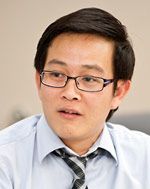
Kosal Path

Research Fellow, Center for Khmer Studies, Cambodia
Spring 2012: “Social Rehabilitation in Post-Genocide Cambodia”This study opts to examine across time, the social adaptation of former KR cadres who were involved directly or indirectly in the genocide committed by the Khmer Rouge (KR) in Cambodia (1975-79). Theoretically, the study combines insights from the fields of Conflict Resolution, Human Rights and Social Psychology and methodologically uses large N survey research and in-depth interviews. It seeks to systematically explore any type of movement on the continuum between rule (compliance with authority), role (internalization of the social/political system), and value based orientation (identification with basic human rights) that may have occurred primarily among former KR cadres (Kelman and Hamilton, 1990). The main objective is to draw comparisons in how these identities have affected the way in which each group has adapted over time, is more likely to make changes in order to deal with demands of life in Cambodia today, and relates to one another. With notable exceptions (Arendt, 1963; Lifton, 1989; 2000; Hinton, 2005), far less attention has been placed on former KR cadres of mass atrocities. Thus, the project asks: To what extent have former KR cadres moved beyond the obedience frame of mind to role and value(s) centered frames given the intense thought reform programs of the KR regime that sought to condition the population of Cambodia in the first place?
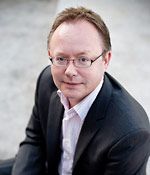
Wolf Gruner

Shapell-Guerin Chair of Jewish Studies and Professor of History, USC
Fall 2011: "Open Protest and Other Forms of Jewish Defiance. Forgotten individual reactions towards anti-Jewish policies in Nazi Germany."Resistance during the Holocaust is still mostly understood as organized or armed group activity, hence overlooking individual acts of opposition. A closer look at the micro level of the Third Reich society challenges the common notion of the image of the Jews as passive victims.
Until now, the availability of sources to analyzing the behaviour of German Jews has been limited. Historians have hitherto drawn from reports originated by the Nazi Party or the state apparatus or written testimonies and diaries or both. In these sources, however, individual acts of opposition barely emerge. With recently discovered and barely analysed local archival sources, such as Berlin police journals, it can be demonstrated that German Jews performed many individual acts of defiance and expressed public protest from 1933 to well into the war. Since many of them were arrested and ended up in concentration camps, the memory of their courageous acts vanished in most cases. First results of the research results on Berlin will be published this fall in an article accepted for publication by the refereed journal Yad Vashem Studies.
The proposed project here aims to confirm and complement the results of the archival research in Germany with a thorough analysis of the video testimonies of the Shoah foundation archive, where, as preliminary research indicates, also incredible acts of individual of courage are hidden in the autobiographical accounts of the survivors.
Corrie ten Boom Research Fellows
Spring 2007
 Joanna Michlic
Joanna Michlic
Associate Prof. and the Helene and Allen Apter Chair in Holocaust Studies and Ethical Values, Lehigh University, Bethlehem, PA
Project Proposal: Book project: Life Begun Anew: The Transformation of Jewish Childhood in the Otwock Orphanage in Poland 1945-1949"
 Jeff Koerber
Jeff Koerber
Doctoral Student, Clark University
Project Proposal: Pre-Doc: Diss Topic: View from the Borderlands: Jews in Belorussia and Poland, 1935-1945
Liora Gubkin
Assistant Professor of Religious Studies Chair
Project Proposal: Issues of Faith: Spiritual Resistance and Jewish Survival
 Efraim Zadoff
Efraim Zadoff
Independent Scholar/Contemporary expert on history of the Jews in Latin America
Project Proposal: Latin American Passports in the Rescue Efforts of Jews during the Holocaust - The Exchange of hostages
Fall 2007
 Michal Aharony
Michal Aharony
Doctoral student, New School for Social Research
Project Proposal: Total Domination: Between Conception and Experience --Rethinking the Arendtian Account through Holocaust Testimony
 Monika Flaschka
Monika Flaschka
Doctoral student, Kent State University
Project Proposal: Rape and Race in Nazi-Occupied Territories
Emmy Kreilkamp
Doctoral student, Indiana University
Project Proposal: Theatrical Performance in German Concentration Camps
.jpg) Dr. Jacek Leociak
Dr. Jacek Leociak
Head of research team for Holocaust Literature Study, Polish Academy of Sciences
Project Proposal: Rescuers and the Rescued [Poland]
 Andree Michaelis
Andree Michaelis
Doctoral student, Free University Berlin
Project Proposal: The Discursive Space of the Shoah Witness in Literary and Video-taped Testimony (use of PIQs)
 Russell Spinney
Russell Spinney
Doctoral student, Pennsylvania State University
Project Proposal: Dealing with Fear: Refashioning Communities, Politics and Ethics in Central Germany (1914-1934)
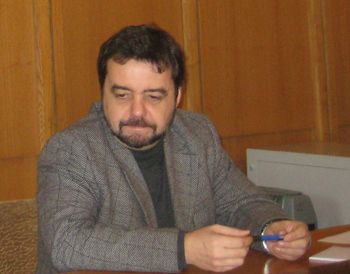
Mikhail Tyaglyy
Doctoral student, Institute of the History of Ukraine

Project Proposal:Away from the Jewish stem? The Survival Strategies of the Krimchaks During the War
Dr. Gregory Weeks
Dept. head, International Relations, Webster University
Project Proposal: The Vienna Police and the Deportation of Jews, 1938-1944
 Richard Lutjens, Jr.
Richard Lutjens, Jr.
Doctoral student, Northwestern University
Project Proposal: Polish and French Jews in hiding
United States
53.092603, 101.425781